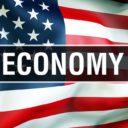
WASHINGTON — She who is about to become the most consequential woman in the history of American government will find it easier to be confirmed than it was to be nominated as the next chair of the Federal Reserve Board. Janet Yellen probably was the president’s second choice, but Senate Democrats demonstrated their intention and ability to reject Larry Summers.
Yellen, whose confirmation hearings are expected to begin Thursday, is suited to be the most important nomination of Barack Obama’s second term (unless there is another Supreme Court vacancy). She is experienced and accomplished, and she represents a broad swath of academic thinking about the power of monetary policy and the Fed’s proper role in wielding that power.
Yellen’s confirmation will warm the chilly heart of Wall Street, which fears “tapering” — slowing the $85 billion per month pace of buying bonds, aka printing money — even more than it seemed to fear the possibility of a default. She probably will continue, perhaps even longer than the departing Ben Bernanke would, the “quantitative easing” that is “trickle-down economics” as practiced by progressives:
Very low interest rates drive investors into equities in search of higher yields. This supposedly produces a “wealth effect” whereby the 10 percent of Americans who own about 80 percent of stocks will feel flush enough to spend and invest, causing prosperity to trickle down to the other 90 percent. The fact that the recovery, now in its fifth year, is still limping in spite of quantitative easing is, of course, considered proof of the need for more such medicine.
Easing serves two Obama goals. It enables the growth of government by deferring its costs with cheap borrowing. And it redistributes wealth: By punishing savers, it effectively transfers wealth from them to borrowers.
Although Yellen’s convictions are honestly convenient for the current administration, members of the Senate Banking Committee should question her about what she considers appropriate — and inappropriate — relations between a Fed chair and government’s political officers. The senators should read “Inside the Nixon Administration: The Secret Diary of Arthur Burns, 1969-1974,” and “How Richard Nixon Pressured Arthur Burns: Evidence from the Nixon Tapes,” by Burton A. Abrams in the Journal of Economic Perspectives (Fall 2006).
Various of Burns’ diary entries begin “President called and asked me to come over,” “The meeting at Camp David,” “President telephoned.” Although Burns insisted “there was never the slightest conflict between my doing what was right for the economy and my doing what served the political interests of RN,” RN took no chances. His speechwriter William Safire, in his memoir “Before the Fall,” recounts that Nixon planted negative media stories about Burns — e.g., saying Burns was requesting a large pay increase, whereas he actually suggested a pay cut — and threatened to weaken him by expanding the Fed’s Board of Governors.
In his memoir “Six Crises,” Nixon wrote that in March 1960 Burns, then a campaign adviser, called to warn about an economic slowdown before the November election and to advocate increased defense spending to counter this. Nixon never stopped treating Burns as a political asset. Nixon aide John Ehrlichman, in his memoir “Witness to Power,” described an Oct. 23, 1969, meeting between Nixon and Burns shortly after Burns’ nomination as Fed chairman. Nixon said:
“‘Arthur, I want you to come over and see me privately anytime. … I know there’s the myth of the autonomous Fed …’ Nixon barked a quick laugh. ‘… and when you go up for confirmation some senator may ask you about your friendship with the president. Appearances are going to be important, so you can call Ehrlichman to get messages to me, and he’ll call you.'”
According to Abrams, a University of Delaware economics professor, Oval Office tapes and monetary data suggest that Nixon “demanded and Arthur Burns supplied an expansionary monetary policy and a growing economy in the run-up to the 1972 election.” Nixon carried 49 states.
There is no reason to doubt Yellen’s intellectual integrity; there is reason to wonder where she thinks the autonomous Fed now fits in the government. The Fed seems to be evolving into a central economic planner with a roving commission to right social wrongs such as unemployment. About this Yellen talks with a humane passion that speaks well of her but is more suited to a political official.
There is considerable congruence between Yellen’s economic theories and the policy preferences of the Democratic liberals who secured her nomination. They probably favor quantitative easing forever, and consider themselves her constituents. Is she prepared to disappoint them?
George Will’s email address is georgewill@washpost.com.





